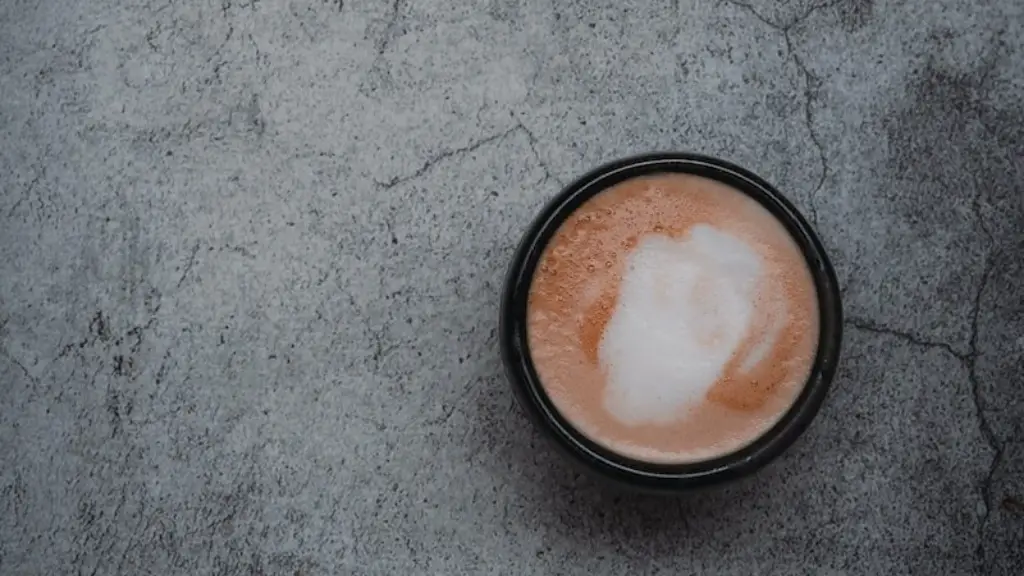Coffee has long been a staple of daily life, usually embraced as an enjoyable energy-booster. Some of its purported health benefits have attracted attention, including as an anti-inflammatory, anti-cancer agent, and in some cases, an agent promoting better iron absorption. But could it be possible that drinking coffee could cause anemia?
Anemia is a condition caused by reduced levels of hemoglobin, a protein required to carry oxygen through the blood. It can be the result of various factors, and a lack of iron is often cited as a primary cause. While iron is primarily found in meat and seafood, iron-rich veggies, nuts and seeds also contain it, and post-menopausal women face an increased risk as their bodies are not as efficient at absorbing iron.
Experts believe that the connection between caffeine and reducing iron absorption can be made if you’re drinking a cup of coffee with each meal. But, it’s the polyphenols found in the coffee grounds, rather than the caffeine itself, that’s the cause for concern. Polyphenols are micronutrients, and can interact with other minerals, such as iron, to reduce how much of this mineral our bodies can absorb. Certainly, an iron-poor diet can also interfere with iron absorption, as can other substances, as well as dietary factors like not eating enough vitamin C, which is also needed for iron absorption.
If someone has an iron-poor diet, they could possibly develop anemia if they also drink a lot of coffee. In this case, the polyphenols in the coffee grounds would combine with the lack of iron in their diet to cause a lack of hemoglobin in the blood, resulting in anemia. But, the only way to know if someone has this issue is to have them tested by their doctor.
Some studies suggest that if you are already anemic, you should cut down on your coffee intake, as it can further deplete your iron stores. However, for most people, it’s unlikely that coffee would be a major culprit in causing anemia. Indeed, for those who enjoy coffee in moderation it may even be beneficial for providing antioxidants and aiding in the absorption of other vitamins and minerals.
In any case, to reduce the chances of developing anemia from any causes, it is wise to ensure that your diet is rich in iron, ensuring you eat plenty of red meats, leafy greens and other iron-rich foods. This is particularly important if you are post-menopausal, vegetarian or vegan, as these diets are often lacking in iron.
Exercise and Anemia
In addition to dietary choices, exercise can play an important role in helping to prevent anemia. When it comes to exercise, the intensity and duration of the activity matter. Low-intensity, longer duration exercises like walking, jogging, and even swimming can help to build up a person’s red blood cell count, which can help to combat anemia. On the other hand, high-intensity exercises like sprinting or weight training can actually cause a person’s red blood cell count to lower, which can contribute to anemia.
If someone is diagnosed with anemia, it’s important to speak to a physician or trainer before engaging in high-intensity workouts to be sure that it’s safe to do so. It’s also important to make sure to drink plenty of fluids before and after exercise to make sure that the body is well-hydrated, which is important for maintaining a healthy red blood cell count. Finally, it’s important to get plenty of rest between workouts, as this ensures that the body has enough time to recover and build up its red blood cell count.
Painkillers and Anemia
One potential cause of anemia that many people are not aware of is the use of certain painkillers. Taking over-the-counter painkillers for chronic pain can, over time, reduce the body’s ability to absorb iron, leading to anemia and other health conditions. However, when taken as directed, the risks are usually minimal.
Still, those who take painkillers on a regular basis should talk to their doctors and monitor their hemoglobin levels periodically, in order to ensure that they are not at risk of developing anemia. Additionally, they should make sure to follow their doctor’s instructions, both when it comes to dosages and when it comes to duration of use.
Many painkillers are available over the counter, but should not be taken in excess or without consulting a doctor. Not doing so can cause serious health problems, including anemia. Therefore, it is best to talk to your doctor before taking the medications, and to follow their advice carefully.
Iron Supplements to Prevent Anemia
The most effective way to prevent anemia is to make sure that your diet includes plenty of iron-rich foods, such as red meat, leafy greens and other iron-rich sources. Iron supplements can also be taken in cases where dietary sources of iron are not sufficient, as supplements can help to ensure that there are enough iron stores available in the body.
Iron supplements should be taken as directed in order to ensure that they are absorbed properly and to prevent overdose. Overdoses of iron can cause serious health problems, including digestive complications and organ damage. Therefore, it is important to speak with your doctor before taking a supplement to make sure that it is the right course of action.
In addition to getting enough iron, it is important to also drink plenty of fluids and get enough rest between workouts and other activities. Doing so can help to ensure that the body is well-hydrated, has enough energy and that hemoglobin levels remain in a healthy range.
Conclusion
In conclusion, there is no conclusive evidence that drinking coffee can cause anemia. However, for those who are already anemic, drinking coffee in moderation is recommended. Also, if someone is at risk of developing anemia, it is important to ensure that their diet includes plenty of iron-rich foods and that adequate hydration and rest are maintained to help prevent the onset of the condition.



